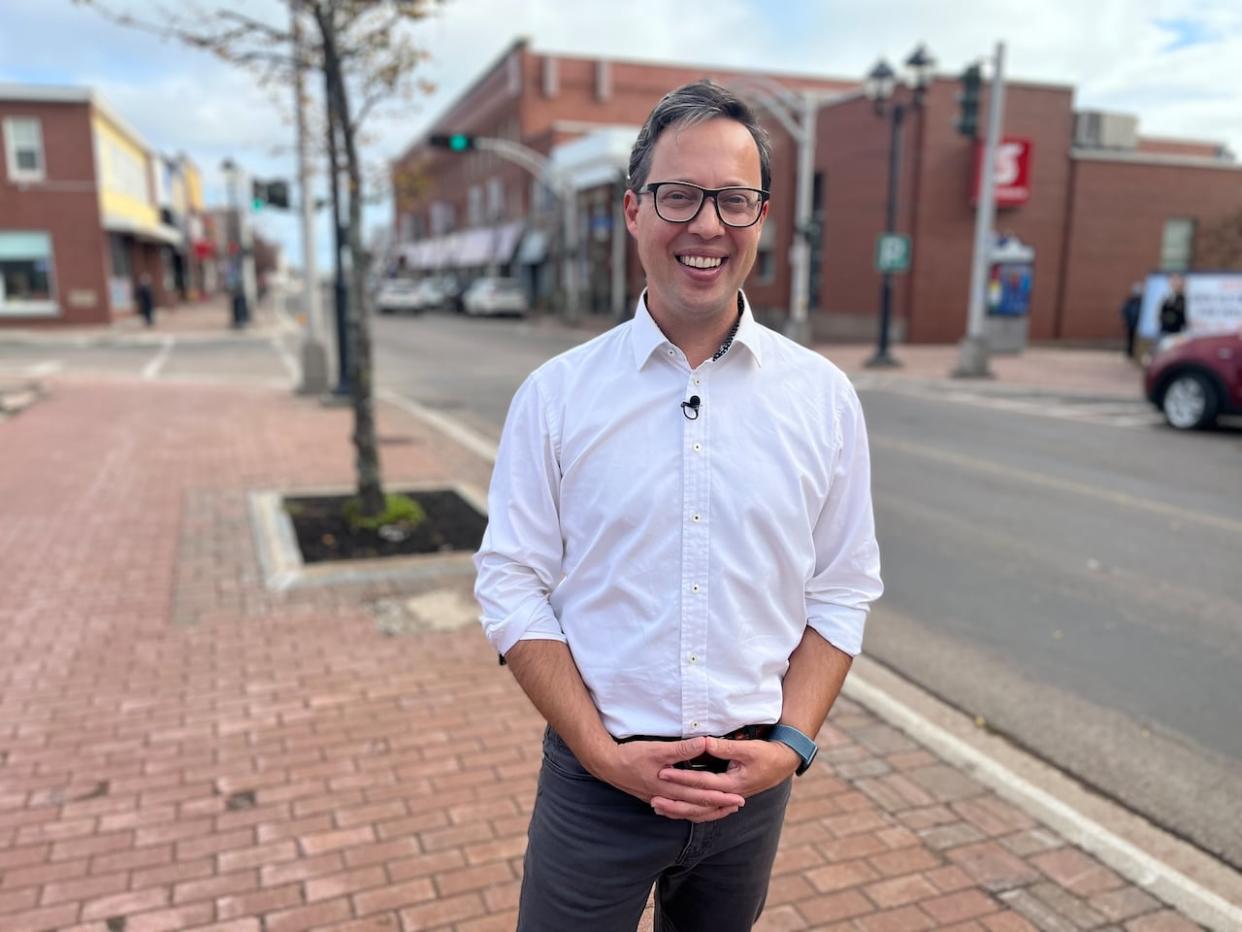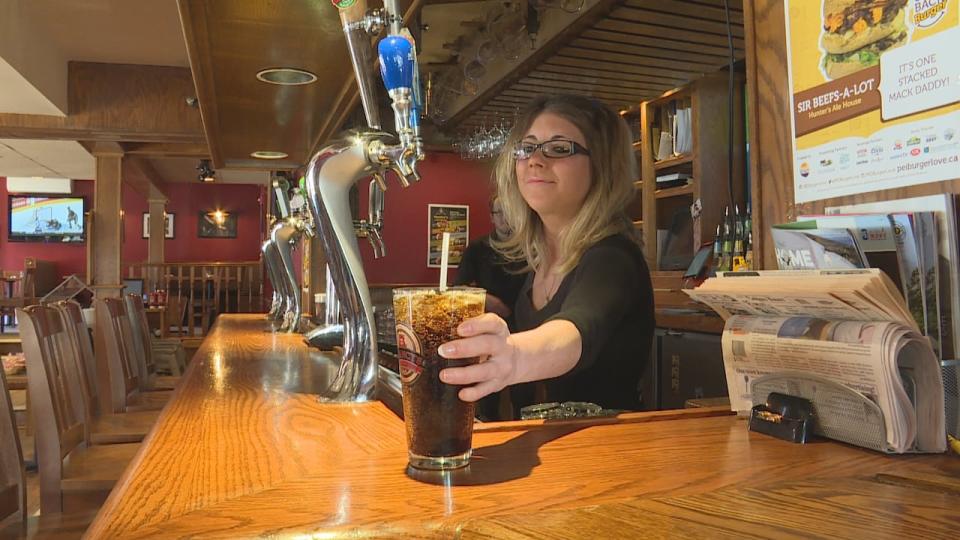Summerside mayor fears his city will decline under new provincial immigration plan

- Oops!Something went wrong.Please try again later.
Summerside Mayor Dan Kutcher has joined P.E.I. business owners and prospective immigrants in speaking out against the provincial government's plans to moderate population growth by cutting back on the number of immigrants working in food service and retail.
In an effort to put the brakes on population growth, the provincial government announced in February that it would reduce its use of the provincial nomination program by 25 per cent.
Kutcher is concerned that's too big a cut.
"I will take managing the pressures of growth over the alternative — which is managing the pressures of decline — every single day of the week," he said.
Problems connected to rapid population growth on Prince Edward Island, which at times has hit a record four per cent year over year, include a housing crisis that dates back to 2019.
Premier Dennis King has repeatedly said the health care system is also struggling to keep up, most recently in comments last week.

Food service and retail employees make up a large part of the P.E.I. workforce. (Tom Steepe/CBC)
Certain industrial sectors, such as construction and health care, will be favoured as the number of prospective immigrants offered P.E.I. nominations drops from about 2,100 last year to about 1,600 this year.
The cutback appeared to bite hard in May.
In the first four months of 2024, the province held seven PNP draws, with an average of 84 invitations per draw. The most recent draw, on May 2, included just six invitations.
P.E.I. employees already working toward permanent residency in other sectors, such as retail and food service, have been taking to the streets to protest the changes since May 9.
"It has drastically impacted my life," Jaspreet Singh Sivia, a call-centre worker.
He was previously confident his work history would earn him permanent residency in Canada, but now he doesn't know. With his temporary work permit ending Oct. 18, it is too late for him to change course and train for another line of work on P.E.I.
He doesn't believe the changes are fair.
"Would they like to eliminate other sectors? Don't they need coffee in the morning? Don't they need breakfast in the morning?" he said.

Premier Dennis King speaks with immigration policy protesters in Charlottetown last week. (Steve Bruce/CBC)
Kutcher is also opposed to the province's nominations favouring certain sectors. From his perspective, the goal is to add younger people to a workforce skewed heavily toward an older demographic.
And he said it's hard to draw a line dividing important P.E.I. industries and non-important ones.
If the industry is doing a relatively good job in terms of retention, that should be a significant number to augment their labour force and to make sure the business is running and being successful. — Premier Dennis King
"You're not going to be able to retain or attract the nurses or the doctors or whoever, the construction workers that you need, if you don't have the baseline economy that services all of them," said Kutcher.
"If you can't get a coffee in the morning at 7:30 when you're driving your daughter to her hockey practice, it's not going to be the kind of place you want to stay."
Sales and service make up a large part of the Island workforce.
There are close to 11,000 workers in retail and wholesale and almost 6,000 in the hospitality industry, which together account for about 18 per cent of P.E.I.'s workers.
No guarantee of permanent residency, says premier
King acknowledged these decisions are difficult, but said he has had to make them in order to make population growth sustainable.
In the last two years, he noted, the province has nominated about 1,700 immigrants in sales and service.
"If the industry is doing a relatively good job in terms of retention, that should be a significant number to augment their labour force and to make sure the business is running and being successful," said King.
"Everyone who comes to P.E.I. in search of [permanent residency] doesn't get nominated, so you can come here and go through the process, but many people, countless hundreds, have come here and not been nominated in the past."
Speaking on Island Morning Tuesday, an immigration advocate with P.E.I.'s Cooper Institute expressed concern that immigrants are being blamed for a housing crisis they did not create.
"This is a government response, to be seen to be moving when they're actually not moving on anything. To blame the health crisis or the housing crisis on the amount of newcomers is just inaccurate," said Joe Byrne.

The province could be doing more to build housing, says Joe Byrne of the Cooper Institute. (Gabrielle Drummond/Radio Canada)
"We have the capacity in this country, in our recent history, to address crisis, if we want to. Blaming the crisis on somebody else and addressing only one part of it, I think, is short-sighted."
The construction industry, despite ramping up the number of workers and housing starts in recent years, has struggled to keep up with population growth.
Last year, the Island added 6,700 residents. With an average of 2.3 people per household, that growth would require about 2,900 new homes, but the province managed just 1,139 housing starts.
First-quarter numbers for this year were much more promising, with 394 starts, the most ever for a first quarter.
The province estimates it will require more than 2,000 homes a year to be built for the next decade. It has only ever passed that goal once, when 2,122 homes went up in 1973.

